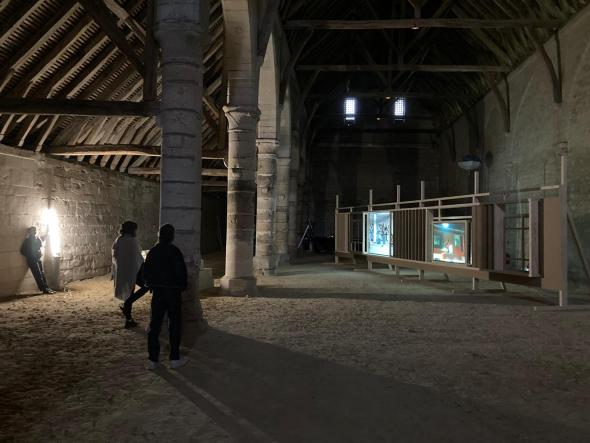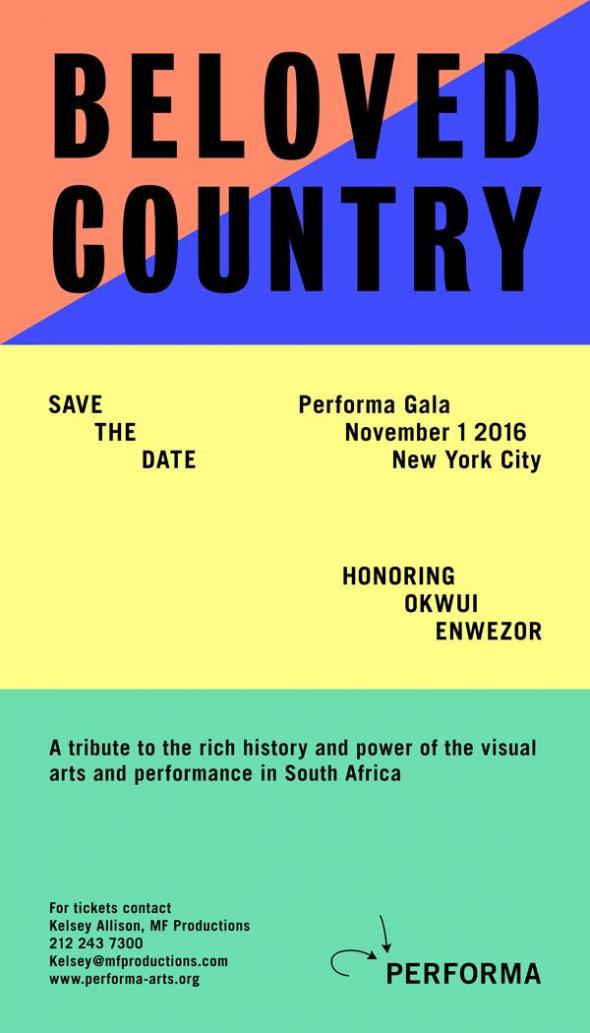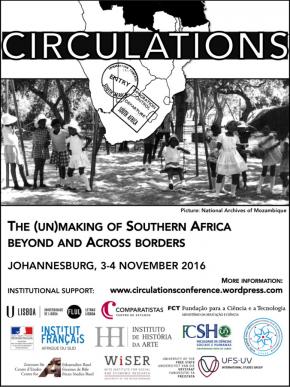Exhibition from 04 July 2021 to 25 September 2021
#BucketsystemMustFall - Centre d’art Ygrec-ENSAPC, Aubervilliers (93)
-Opening on Saturday 03 July from 2.30 pm to 7 pm
-Open from Wednesday to Saturday from 1pm to 7pm
Indépendance Cha Cha - Centre d’art de l’Abbaye de Maubuisson, Saint Ouen-L’Aumône (95)
-Opening on Sunday 04 July from 2.30 pm to 6.15 pm
-Booking mandatory - 01.34.33.85.00
Open each day except for Tuesday from 1pm to 6.15pm Wednesday 9.30am - 11.45am and 1pm - 6.15pm

From July 4 to September 25, 2021, the exhibition Ângela Ferreira, structures and gestures - Independence Cha Cha & #BucketsystemMustFall unfolds on two sites: the art center of the Abbaye de Maubuisson, located in Saint Ouen-L’Aumône (95) and Ygrec-ENSAPC, art center of the Ecole nationale supérieure d’arts Paris-Cergy located in Aubervilliers (93). Ângela Ferreira proposes two distinct installations in relation to the two specific contexts: on the one hand the architectural heritage of the abbey’s gardens, and on the other hand the urban density and the history of migration in Aubervilliers.
In the barn of the Maubuisson Abbey Art Center, Ângela Ferreira presents Independence Cha Cha, an installation composed notably of a large-scale wooden sculpture. Inspired by her participation in the Lubumbashi Biennial (Democratic Republic of Congo) in 2013, the sculpture borrows its modernist form from that of the façade of a service station located in the center of Lubumbashi created by the Belgian architect Claude Strebelle in the late 1950s. This sculpture serves as a support for the projection of two videos. The first documents a performance organized by the artist during the Lubumbashi Biennale, in which two singers sing the song «Je vais entrer dans la mine» (I’m going to enter the mine). In the second, which gives its title to the work, the musical group of the Hôtel du Parc of Lubumbashi interprets «Independence Cha Cha», an emblematic hymn of the African Francophone independence movement. Interacting with the sculpture is a series of collages that include photographs and various documents related to the events presented in the videos.
At Ygrec-ENSAPC, Ângela Ferreira proposes a new installation specially designed for the art center. Entitled #BucketsystemMustFall, it refers to the South African student protest movement #RhodesMustFall, initially directed against the memorial statue of Cecil John Rhodes (British colonialist, 1853-1902), a symbol of the persistence of institutional racism within the University of Cape Town. On March 9, 2015, in order to call for its removal, activist Chumani Maxwele grabbed a bucket of excrement and dumped it on the statue. This highly publicized gesture led to the removal of the statue and initiated a strong mobilization across South Africa advocating for the decolonization of education and universities. By bringing together the images of the fallen statue with precarious latrines, Ferreira articulates the ideas of debunking, political activism with the symbolism of the “bucket system toilet”, a blatant revelation of social inequalities and segregation. Finally, “and by implication only, it points to the question and meaning of using human feces as a tool for political statement. An image which seems to have become central to South African urban problems.”
From facades to monuments, Ângela Ferreira’s double exhibition bears witness to her interest in architecture and the investigative work that the artist carries out to make visible the political agendas and ideologies that constructions - in all their forms - convey. Combining research and artistic experimentation, her works - be they sculptural, video or photographic - explore the survivals and ghosts of colonialism and post-colonialism in contemporary society. They contribute to uncovering unofficial memories and narratives and the insidious mechanisms of oppression, while problematizing the revolutionary utopias of the euphoric period surrounding African independence movements and nation building.
In order to share the artistic and social interrogations inherent to Ângela Ferreira’s work beyond the two exhibition sites, a series of discussions and a seminar will be organized with the Théâtre de La Commune d’Aubervilliers in the fall of 2021, inviting students, researchers and associations.
Curated by: Corinne Diserens, Marie Menèstrier et Guillaume Breton
*Ângela Ferreira
Originally from Mozambique, where she was born in 1958, Ângela Ferreira grew up in South Africa where she received her MFA at the Michaelis School of Fine Art at the University of Cape Town. She lives and works in Portugal and teaches at the University of Lisbon where she completed a PhD in 2016.
Her work has been presented in Portugal, Africa and internationally in solo exhibitions which include: A Spontaneous Tour of Some Monuments of African Architecture, Hangar, Lisbon (2021); Talk Tower for Forough Farrokhzad, Tensta Konsthall, Stockholm (2021); 1 Million Roses for Angela Davis, Staatliche Kunstsammlungen, Dresden (2020); Dalaba: Sol d’Exil, Fidelidade Arte, Lisbon (2019); Pan African Unity Mural, MAAT – Museu Arte Arquitetura Tecnologia, Lisbon, (2018); Boca, Centre Régional de la Photographie, Douchy-les-Mines (2016); Wattle and Daub, Old School, Lisbon (2016); Hollows Tunnels, Cavities and more…, Filomena Soares Gallery, Lisbon (2015); A Tendency to Forget, Museu Berardo, Lisbon (2015); Messy Colonialism, Wild Decolonization, Zona MACO SUR, Mexico (2015); Revolutionary Traces, Stroom, Den Haag (2014); SAAL Brigades, Museu de Serralves, Oporto (2014); Independance Cha Cha, Galeria do Parque, Vila Nova da Barquinha (2014); Political Cameras (from Mozambique series), Stills, Edinburgh (2012); For Mozambique, Michael Stevenson Gallery, Cape Town (2008); Hard Rain Show, Berardo Museum, Centro Cultural de Belém, Lisbon and La Criée art center, Rennes (2008)…
She has participated in numerous group exhibitions as well as several international biennials such as the 3rd Lubumbashi Biennial (2013), the 28th São Paulo Biennial (2008) the 52nd Venice Biennial (2007).


 – Borderlines: the making and unmaking of borders in Southern Africa.
– Borderlines: the making and unmaking of borders in Southern Africa. Between 3-6 November, Johannesburg will host the conference “The (un)making of Southern Africa beyond and across borders”.
Between 3-6 November, Johannesburg will host the conference “The (un)making of Southern Africa beyond and across borders”.

